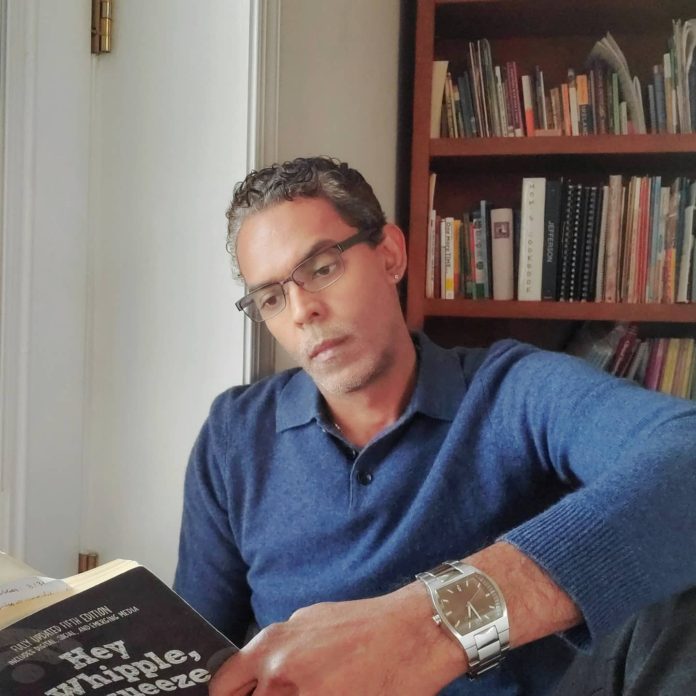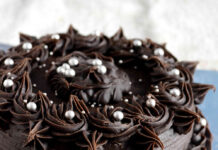Observing the Natural Change
Just as rain or sunshine can change, so too can our personalities. We must renew ourselves with nature and art
Stephen Choo Quan
The animal symbolism across the different stages of life mirrors the natural changes people undergo:
- Peacock to Lion (20-30): From self-expression to a focus on power and responsibility.
- Lion to Camel (30-40): From ambition to carrying life’s burdens with resilience.
- Camel to Serpent (40-50): Moving from endurance to gaining wisdom and transformation.
- Serpent to Dog (50-60): Transitioning to a stage of loyalty, service, and deep relationships.
- Dog to Monkey (60-70): Adopting a lighter, more reflective, and adaptable attitude.
- Monkey to Nothing (70-80): A quiet phase of letting go, simplicity, and peace.
@20 Peacock: Self-Discovery, Confidence, and Ambition
The peacock symbolizes self-expression, confidence, and a desire to stand out, often associated with youthful energy, curiosity, and self-discovery. At this stage, people are trying to find their identity and are often concerned with how others perceive them.
Books that resonate:
- “The Alchemist” by Paulo Coelho – A journey of self-discovery and personal legend.
- “The Perks of Being a Wallflower” by Stephen Chbosky – Youth, identity, and belonging.
- “The Catcher in the Rye” by J.D. Salinger – Dealing with alienation and teenage angst.
@30 Lion: Strength, Ambition, and Leadership
The lion represents strength, courage, and leadership. In the 30s, people are often establishing their careers, finding their place in the world, and striving to achieve their goals with determination. There’s a sense of power and responsibility, but also the struggle to balance personal and professional life.
Books that resonate:
- “Lean In” by Sheryl Sandberg – Ambition and leadership, especially for women in the workforce.
- “Grit: The Power of Passion and Perseverance” by Angela Duckworth – Perseverance in the pursuit of long-term goals.
- “Outliers” by Malcolm Gladwell – Understanding the factors behind success and leadership.
@40 Camel: Responsibility, Resilience, and Endurance
The camel symbolizes endurance, patience, and carrying responsibility. By the 40s, life is often centered around family, career responsibilities, and personal reflection. People tend to focus on long-term endurance, bearing the weight of their commitments, and learning to cope with life’s challenges.
Books that resonate:
- “The Road Less Traveled” by M. Scott Peck – Reflecting on personal growth, responsibility, and resilience.
- “Dare to Lead” by Brené Brown – Courage and leadership in both professional and personal realms.
- “The Four Agreements” by Don Miguel Ruiz – A spiritual guide to living with freedom and responsibility.
@50 Serpent: Wisdom, Cunning, and Transformation
The serpent is a symbol of wisdom, transformation, and adaptability. In the 50s, people start reflecting on life more deeply, thinking about their legacy, and are often more concerned with wisdom than ambition. There’s a transformation toward valuing experience and insight over brute force or perseverance.
Books that resonate:
- “The Second Mountain” by David Brooks – A journey of transformation and finding deeper meaning after achieving initial success.
- “Falling Upward” by Richard Rohr – Spiritual wisdom for the second half of life, focusing on transformation.
- “The Road to Character” by David Brooks – Reflections on cultivating deeper virtues like humility and wisdom.
@60 Dog: Loyalty, Service, and Legacy
The dog symbolizes loyalty, service, and companionship. At this stage, people often become more reflective on relationships, their contributions, and their legacy. They may become more focused on serving others, leaving behind a positive impact, and maintaining strong connections with family and friends.
Books that resonate:
- “The Gift of Years” by Joan Chittister – Embracing aging gracefully and focusing on giving back.
- “Being Mortal” by Atul Gawande – A compassionate look at aging and the importance of living well while serving others.
- “The Art of Happiness” by Dalai Lama – Finding joy and fulfillment in relationships and service to others.
@70 Monkey: Reflection, Playfulness, and Adaptation
The monkey represents adaptability, reflection, and a return to playfulness. By the 70s, people may have a lighter approach to life, able to reflect on the past with wisdom but also adopt a more carefree attitude. There’s a sense of understanding life’s complexity and embracing its imperfections.
Books that resonate:
- “Gratitude” by Oliver Sacks – Reflecting on life’s gifts with a light-hearted and appreciative perspective.
- “Tuesdays with Morrie” by Mitch Albom – Reflecting on life’s lessons with a blend of wisdom and playfulness.
- “The Remains of the Day” by Kazuo Ishiguro – A reflective novel about dignity and the understanding that comes with looking back on life.
@80 Nothing: Letting Go, Silence, and Simplicity
In your concept, at 80, there is nothing—a phase of letting go, acceptance, and perhaps serenity. This reflects the natural progression where, in the later stages of life, people focus on the simplicity of being and may embrace silence, peace, and a sense of completion.
Books that resonate:
- “The Year of Magical Thinking” by Joan Didion – A reflection on loss, letting go, and finding peace.
- “Gilead” by Marilynne Robinson – A meditation on faith, forgiveness, and simplicity in life’s final chapter.
- “The Wisdom of Insecurity” by Alan Watts – A philosophical exploration of living in the present and letting go of control.
This natural progression reflects how people evolve through different life phases, focusing on self-discovery in youth, achievement in midlife, and eventually finding wisdom and peace in later years.
Here are ten book suggestions for each age bracket, offering a mix of fiction, non-fiction, and personal development to suit different stages of life. These books touch on themes that resonate with the unique experiences and challenges faced during each age range:
Under 20: Coming of Age & Self-Discovery
- “The Catcher in the Rye” by J.D. Salinger
- It is a classic tale of teenage angst and alienation.
- “The Perks of Being a Wallflower” by Stephen Chbosky
- Story of growing up, friendship, and mental health.
- “The Outsiders” by S.E. Hinton
- Exploring class conflict and identity in youth.
- “To Kill a Mockingbird” by Harper Lee
- Morality, justice, and racism from a child’s perspective.
- “Harry Potter and the Philosopher’s Stone” by J.K. Rowling
- Magical adventure about friendship and courage.
- “The Hunger Games” by Suzanne Collins
- Dystopian survival with themes of rebellion and empowerment.
- “Speak” by Laurie Halse Anderson
- The story of a girl dealing with trauma and finding her voice.
- “The Fault in Our Stars” by John Green
- A love story touching on mortality and young love.
- “The Book Thief” by Markus Zusak
- WWII story of survival, family, and the power of words.
- “Anne of Green Gables” by L.M. Montgomery
- Classic coming-of-age story of imagination and belonging.
20-30: Self-Exploration & Career
- “The Alchemist” by Paulo Coelho
- A philosophical journey about following your dreams.
- “Becoming” by Michelle Obama
- Inspirational memoir on personal growth and empowerment.
- “Educated” by Tara Westover
- A memoir about the power of education and self-invention.
- “Atomic Habits” by James Clear
- A guide to building good habits and personal success.
- “Sapiens: A Brief History of Humankind” by Yuval Noah Harari
- A history of humanity with reflections on progress and meaning.
- “Man’s Search for Meaning” by Viktor Frankl
- A Holocaust survivor’s reflections on finding purpose in suffering.
- “The Defining Decade” by Meg Jay
- Why your twenties are critical for defining the rest of your life.
- “Big Magic: Creative Living Beyond Fear” by Elizabeth Gilbert
- Insights on creativity and overcoming fear.
- “Quiet: The Power of Introverts in a World That Can’t Stop Talking” by Susan Cain
- Embracing the strengths of introversion.
- “Daring Greatly” by Brené Brown
- The importance of vulnerability in achieving meaningful lives.
30-40: Family, Career, and Life Balance
- “Lean In” by Sheryl Sandberg
- Women, work, and the will to lead.
- “Grit: The Power of Passion and Perseverance” by Angela Duckworth
- Exploring how perseverance matters more than talent.
- “Dare to Lead” by Brené Brown
- Lessons on brave leadership in life and work.
- “The Road Less Traveled” by M. Scott Peck
- Reflections on love, growth, and personal responsibility.
- “Born a Crime” by Trevor Noah
- A humorous yet powerful memoir on growing up in apartheid South Africa.
- “The Power of Now” by Eckhart Tolle
- A guide to spiritual enlightenment and living in the moment.
- “The Subtle Art of Not Giving a F*ck” by Mark Manson
- A counterintuitive approach to living a good life.
- “Untamed” by Glennon Doyle
- On embracing authenticity and rejecting societal expectations.
- “Outliers: The Story of Success” by Malcolm Gladwell
- An analysis of the factors behind extraordinary success.
- “The Happiness Project” by Gretchen Rubin
- A practical guide to pursuing happiness in everyday life.
40-50: Reflection, Responsibility & Maturity
- “The 7 Habits of Highly Effective People” by Stephen Covey
- Timeless principles for personal and professional growth.
- “How to Win Friends and Influence People” by Dale Carnegie
- Classic advice on interpersonal skills.
- “Middlesex” by Jeffrey Eugenides
- A multigenerational family saga with themes of identity and change.
- “Option B” by Sheryl Sandberg and Adam Grant
- Building resilience and finding joy after hardship.
- “When Breath Becomes Air” by Paul Kalanithi
- It is a poignant memoir on life, death, and what makes life worth living.
- “The Four Agreements” by Don Miguel Ruiz
- A practical guide to personal freedom and living authentically.
- “Drive” by Daniel Pink
- The surprising truth about what motivates us in work and life.
- “The Goldfinch” by Donna Tartt
- A novel of art, loss, and survival.
- “The Art of Happiness” by Dalai Lama
- Exploring happiness from a spiritual and philosophical perspective.
- “A Man Called Ove” by Fredrik Backman
- It is a heartwarming novel about love, loss, and unlikely friendships.
50-60: Purpose & Legacy
- “The Second Mountain” by David Brooks
- About finding deeper purpose and connection after initial success.
- “The Art of Stillness” by Pico Iyer
- Reflections on the value of slowing down in a fast-paced world.
- “The Overstory” by Richard Powers
- A novel about nature, activism, and interconnectedness.
- “Falling Upward: A Spirituality for the Two Halves of Life” by Richard Rohr
- Spiritual wisdom for finding purpose later in life.
- “Being Mortal” by Atul Gawande
- On aging, death, and the medicalization of mortality.
- “The Road to Character” by David Brooks
- A reflection on the deeper virtues that lead to fulfillment.
- “Where the Crawdads Sing” by Delia Owens
- A mystery and coming-of-age novel with themes of loneliness and survival.
- “The Blue Zones of Happiness” by Dan Buettner
- Lessons on living long and happily from the world’s healthiest regions.
- “Let Your Life Speak” by Parker J. Palmer
- Understanding vocation and purpose in midlife.
- “Olive Kitteridge” by Elizabeth Strout
- A poignant novel about aging, love, and life’s complexities.
60-70: Wisdom & Reflection
- “The Year of Magical Thinking” by Joan Didion
- A profound meditation on grief, loss, and survival.
- “A Gentleman in Moscow” by Amor Towles
- A novel about history, exile, and enduring personal integrity.
- “Disrupt Aging” by Jo Ann Jenkins
- Rethinking aging, empowerment, and living a purposeful life.
- “All the Light We Cannot See” by Anthony Doerr
- A WWII novel about survival and resilience.
- “Gratitude” by Oliver Sacks
- Reflections on life and gratitude at the end of a doctor’s life.
- “Late Migrations” by Margaret Renkl
- A collection of essays on nature, family, and memory.
- “The Gift of Years” by Joan Chittister
- Embracing the aging process and its gifts.
- “The Nightingale” by Kristin Hannah
- A WWII story about the power of women’s courage and sacrifice.
- “This Chair Rocks: A Manifesto Against Ageism” by Ashton Applewhite
- Challenging stereotypes about aging and living vibrantly.
- “Pachinko” by Min Jin Lee
- A family saga spanning generations, exploring identity and survival.
Over 70: Legacy, Gratitude & Reflection
- “Tuesdays with Morrie” by Mitch Albom
- Life lessons learned from a wise elder.
- “Being Mortal” by Atul Gawande
- A compassionate look at aging, medicine, and end-of-life care.
- “The Last Lecture” by Randy Pausch
- Inspirational lessons on life, death, and pursuing your dreams.
- “The Remains of the Day” by Kazuo Ishiguro
- It is a novel about dignity, regret, and reflecting on a life lived.
- “Gilead” by Marilynne Robinson
- It is a moving, reflective novel about faith, family, and legacy.
- “Wisdom of the Ages” by Wayne Dyer
- Practical advice on living with purpose and grace in old age.
- “The Gift of Years: Growing Older Gracefully” by Joan Chittister
- This inspirational book celebrates the blessings and opportunities that come with aging. It encourages embracing later years with a sense of purpose, wisdom, and gratitude, offering perspectives on living well in the “third act” of life.
- “Gratitude” by Oliver Sacks
- A series of essays written by the neurologist Oliver Sacks as he reflects on his life and impending death. Sacks expresses deep gratitude for the gift of life, his experiences, and the beauty he found in the world around him.
- “The Year of Magical Thinking” by Joan Didion
- A poignant memoir about grief, loss, and resilience following the sudden death of Didion’s husband. While it deals with tragedy, it is also about the strength to carry on and reflect on life’s impermanence.
- “This Chair Rocks: A Manifesto Against Ageism” by Ashton Applewhite
- This book challenges the cultural stereotypes and prejudices about aging, offering a fresh perspective on living vibrantly in later years. It’s empowering and inspires readers to redefine what it means to grow older.











